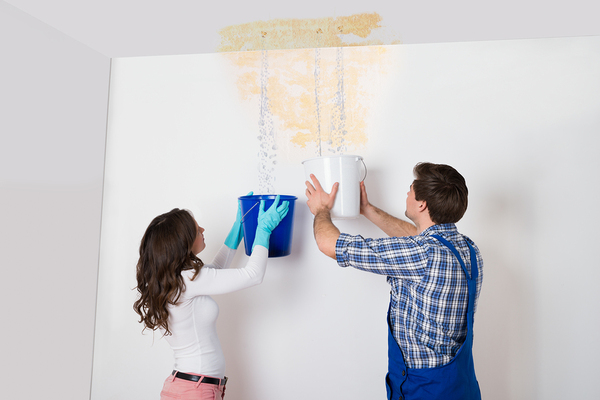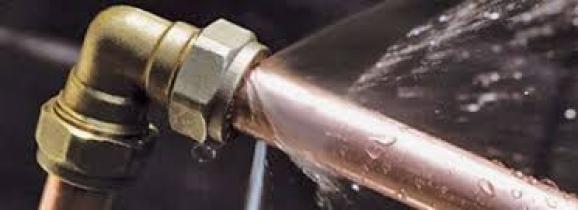Exploring Why Leak Issues Are So Widespread in Your House
Exploring Why Leak Issues Are So Widespread in Your House
Blog Article
The author is making a number of good points relating to How Fast Water Damage Can Ruin Your Home as a whole in this content down the page.

Leaks not just trigger waste of water yet can additionally cause unneeded damage to your home and promote undesirable natural development. Water leakages could go undetected given that many of the pipework in our house is concealed. By recognizing as well as looking for daily situations that cause leakages, you can secure your house from future leaks and unneeded damage. Today, we will consider 6 leak creates that might be causing your pipelines to leak.
Immediate temperature adjustments.
Extreme temperature level changes in our pipes can trigger them to increase and also contract all of a sudden. This expansion and tightening may trigger splits in the pipes, particularly if the temperature are below freezing. It would be best if you kept an eye on how your plumbing works. The existence of the previously pointed out scenarios often indicates a high risk.
Rusty water systems
As time passes by, your plumbing system ages and also rust such as corrosion may begin gnawing the pipelines. This may be the root cause of staining or warping on your water pipes. This asks for an inspection with your plumber instantly. Take into consideration replacing the pipelines because they are at a greater danger of corrosion than the more recent versions if our plumbing system is old.
Malfunctioning Pipe Joints
The point at which your pipelines attach is regularly the weakest web link in the waterline. Pipeline joints can deteriorate with time, causing water leaks. Sadly, most of pipe joints are not conveniently visible. If you have loud pipelines that make ticking or banging noises, specifically when the hot water is turned on, your pipe joints are probably under a great deal of pressure. It is suggested to have your plumber inspect your system yearly.
Trespassing origins
Most water leaks begin outside your house instead of inside it. If you see a sudden decrease in water stress, state in your tap, take some time to head out and also analyze your yard. You might discover wet spots or sinkholes in your lawn, and that might suggest that tree roots are getting into water lines causing water to seep out. You can have your plumber look for intrusion, specifically if you have trees or bushes near your building.
Poor Water Connectors
At times, a leakage can be brought on by loose pipes as well as pipes that provide your devices. More often than not, shifting is what triggers the loose water Links. You may find when it comes to a cleaning maker, a hose pipe may spring a leakage due to drinking throughout the spin cycle. In case of a water connections leakage, you might notice water running straight from the supply line or pools around your appliances.
Blocked Drains
Obstructed drains pipes could be frustrating and inconveniencing, but they can often end up causing an overflow bring about break pipes. Keep getting rid of any materials that may go down your drains that might obstruct them to stay clear of such inconveniences.
All the above are reasons for leakages but not all water leakages arise from plumbing leakages; some leaks could originate from roof leaks. All leaks should be repaired right away to prevent water damage.
Leaks not just trigger waste of water yet can likewise trigger unnecessary damages to your house and promote undesirable natural development. By comprehending as well as looking for daily scenarios that cause leakages, you can protect your home from future leaks and also unneeded damage. Today, we will look at 6 leakage creates that might be triggering your pipelines to leak.
At times, a leakage can be created by loosened hose pipes and pipes that supply your appliances. In case of a water links leak, you may discover water running directly from the supply line or puddles around your devices.
How To Check For Water Leak In Your Home
How To Check for Leaks
The average household's leaks can account for nearly 10,000 gallons of water wasted every year and ten percent of homes have leaks that waste 90 gallons or more per day. Common types of leaks found in the home are worn toilet flappers, dripping faucets, and other leaking valves. These types of leaks are often easy to fix, requiring only a few tools and hardware that can pay for themselves in water savings. Fixing easily corrected household water leaks can save homeowners about 10 percent on their water bills.
To check for leaks in your home, you first need to determine whether you're wasting water and then identify the source of the leak. Here are some tips for finding leaks:
Take a look at your water usage during a colder month, such as January or February. If a family of four exceeds 12,000 gallons per month, there are serious leaks.
Check your water meter before and after a two-hour period when no water is being used. If the meter changes at all, you probably have a leak.
Identify toilet leaks by placing a drop of food coloring in the toilet tank. If any color shows up in the bowl after 10 minutes, you have a leak. (Be sure to flush immediately after the experiment to avoid staining the tank.)
Examine faucet gaskets and pipe fittings for any water on the outside of the pipe to check for surface leaks.
Undetected water leaks can happen without the home or business owner even realizing. If you suspect a water leak, but not able to find the source. It is time to contact a professional water leak detection service, The Leak Doctor.
How To Find a Water Leak In Your Home
https://www.leakdoctor.com/blog/How-To-Check-For-Water-Leak-In-Your-Home_AE197.html

I discovered that content on Top Causes of Home Water Leaks when perusing the search engines. Sharing is caring. Helping people is fun. Thank you for your time. Don't forget to stop by our site back soon.
Reliable help? Dial. Report this page